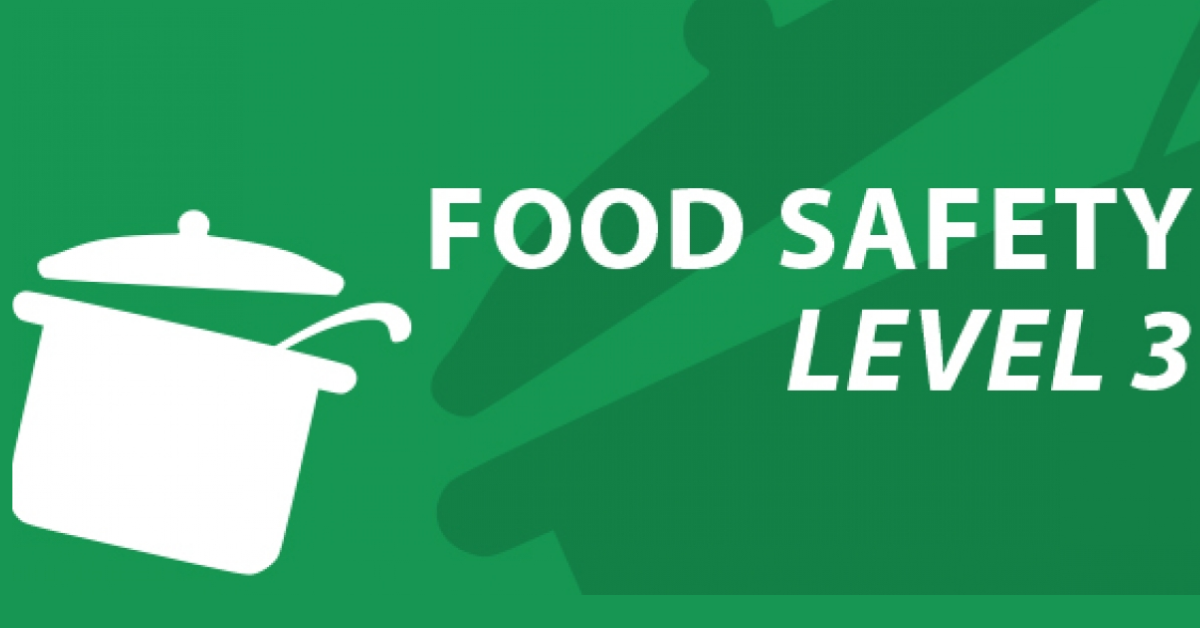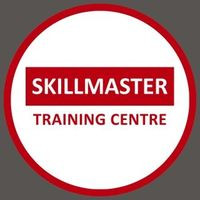Food Safety Course Level 3: The Right Choice for Supervisors and Managers in F&B

Strong 8k brings an ultra-HD IPTV experience to your living room and your pocket.
Food safety is more than just washing hands or wearing gloves. In professional kitchens, cafes, catering businesses, and food factories, safety is a system — and managing that system needs knowledge, skills, and certification. This is where the Food Safety Course Level 3 becomes essential.
If you're already certified with Level 1 or 2, or working in a leadership role in the food industry, this advanced course is the next step. It’s designed to give you full control over food safety policies, hazard management, and operational hygiene systems at a higher level.
In this article, we will explain what the Food Safety Course Level 3 is, who should take it, what you will learn, how it’s structured, and how it helps in career growth.
What is Food Safety Course Level 3?
The Food Safety Course Level 3 is an advanced food hygiene training course that equips professionals with the knowledge to supervise, implement, and manage food safety systems in food establishments. It focuses on preventive measures, risk analysis, hygiene auditing, and the implementation of food safety management systems (FSMS).
This course is typically part of the Workforce Skills Qualifications (WSQ) framework in Singapore and is aligned with the requirements of the Singapore Food Agency (SFA).
It is specially designed for supervisors, QA managers, kitchen heads, and business owners who are responsible for food safety procedures and policy compliance in their establishments.
Who Should Take Food Safety Course Level 3?
This course is not for beginners. It is meant for those who are already working in food handling or have completed Level 1 and Level 2 food safety courses. Ideal candidates include:
Kitchen Supervisors
Restaurant Managers
Catering Operation Leads
Quality Assurance Staff
Food Production Line Managers
Central Kitchen Supervisors
HACCP Team Members
Food Business Owners
If you're managing food staff or in charge of ensuring compliance with hygiene rules, this course gives you the authority and tools to do it professionally.
Why is Food Safety Course Level 3 Important?
In higher-level food handling roles, you're not just responsible for your own actions — you're also responsible for your team's hygiene and the safety of your entire operation.
Here’s why this course is crucial:
1. Legal Accountability
In case of food poisoning or hygiene breaches, authorities may question the supervisory staff. Having this certification proves that you are trained to maintain safety and prevent issues.
2. System-Level Knowledge
It helps you implement full systems like FSMS, HACCP, and SOPs — not just individual hygiene steps.
3. Inspection and Audits
With Level 3 knowledge, you can confidently handle internal audits, pre-inspections, and even SFA visits.
4. Better Job Roles
This certificate allows you to move into higher positions in food safety, training, and operations management.
5. Business Reputation
For business owners, this course ensures your outlet maintains a top hygiene grade and avoids penalties.
What Will You Learn in Level 3?
The Food Safety Course Level 3 syllabus covers a broad range of topics at a system and managerial level. Here’s what’s usually included:
🧾 Core Modules:
Principles of Hazard Analysis and Critical Control Points (HACCP)
Developing and implementing Food Safety Management Systems (FSMS)
Understanding food legislation and regulatory requirements
Identifying and assessing food safety hazards
Designing and maintaining Standard Operating Procedures (SOPs)
Managing cleaning schedules and pest control programs
Supervising food handlers and evaluating hygiene performance
Preparing for internal and external audits
You will also be trained on how to investigate incidents, document safety practices, and train junior staff on proper hygiene standards.
Course Duration and Format
The course typically runs for 3 full days (approximately 21 to 24 hours total) and includes both theoretical and practical training. Here's the usual format:
Day 1: Introduction to food safety systems, hazard identification
Day 2: HACCP principles, documentation, SOP development
Day 3: Auditing procedures, corrective actions, assessments
Most training providers offer in-person classes, while some may have blended options with online modules.
Course Assessment
To pass the course and receive the WSQ Statement of Attainment for Food Safety Level 3, you must complete:
Written Test – typically multiple-choice, case study-based, or open-ended questions
Practical Assignment – demonstrating ability to prepare documents or solve hygiene problems
Project Submission – some centres may include a mini-project on food safety planning
Assessments are conducted under strict evaluation criteria, so preparation is essential.
Certificate Validity
The Level 3 food safety certificate is generally valid for 5 years. After this, you may need to take a refresher course or attend industry-approved CPD (Continuing Professional Development) programs to stay updated with new regulations and methods.
Entry Requirements
To qualify for this course, candidates are expected to meet the following:
Completed WSQ Food Safety Course Level 1 and Level 2
Basic understanding of written and spoken English
Working experience in food handling or operations
Managerial or supervisory role preferred but not always mandatory
The training provider may conduct a short screening or ask for your previous certifications during registration.
Languages Available
Though most Level 3 courses are taught in English, some training centres may offer them in Mandarin or Malay if demand is high. It’s best to check language availability during booking.
Course Fees and Subsidies
The average cost of the Food Safety Course Level 3 ranges between $350 to $500, depending on the training provider.
For Singapore Citizens and PRs, you can apply for SSG subsidies that cover up to 90% of the course fee. Those eligible for Workfare Training Support (WTS) can also enjoy enhanced funding.
Payment using SkillsFuture Credits is usually allowed, especially for self-sponsored individuals.
Career Benefits of Food Safety Course Level 3
This course offers more than just a certificate — it opens real doors for professional growth. Here’s how:
Promotion to supervisory roles in large kitchens, hotels, and central food processing units
Ability to conduct in-house audits and train junior staff
Strong resume boost for quality assurance jobs in food factories and distribution units
Confidence to lead hygiene inspections and audits
Enhanced eligibility for roles like Food Hygiene Officer, QA Executive, or HACCP Coordinator
For entrepreneurs, it helps reduce compliance risks and build customer trust through consistent hygiene practices.
How to Register for the Course
Registering for the Food Safety Course Level 3 is easy. Here's a general step-by-step:
Choose an SSG-approved training provider that offers WSQ Level 3 certification
Check course schedule and pick a suitable date
Submit required documents (previous certificates, ID proof)
Make payment online or through SkillsFuture Credit
Attend the course and complete the assessments
Receive certification upon successful completion
Some providers also offer group bookings for companies who want to train multiple staff at once.
Final Words: Should You Take the Food Safety Course Level 3?
If you are already working in the food industry and looking to grow into a leadership role — then yes, this course is absolutely worth it. The Food Safety Course Level 3 gives you the tools, confidence, and certification needed to lead food safety systems in your organisation.
It’s not only about complying with laws — it’s about doing your job better, preventing health risks, and showing customers that you care about quality.
Whether you manage a restaurant kitchen, a food factory line, or a cloud kitchen business, this course brings value and professionalism to your role.
Note: IndiBlogHub features both user-submitted and editorial content. We do not verify third-party contributions. Read our Disclaimer and Privacy Policyfor details.



